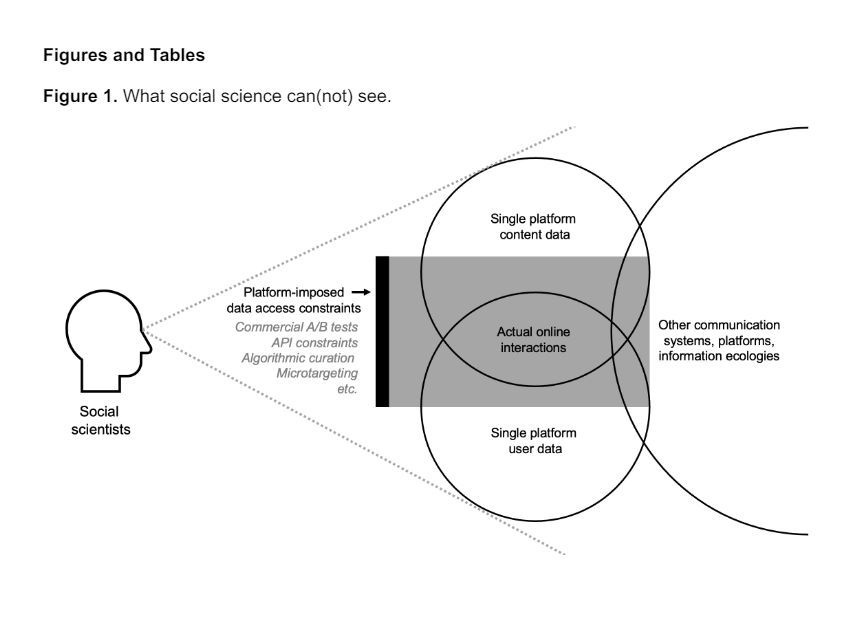Our inability to reliably study algorithmic info ecosystems, and why it matters for
#scicomm. Pre-publication version of our forthcoming PNAS piece led by Nicky Krause and Isabelle Freiling :
osf.io/preprints/so... (a 🧵)
"As the algorithms underpinning new media platforms determine how to prioritize content for maximal user engagement and retention, science-related information will struggle to compete."
"Given that the infrastructural logic of new media is to optimize for user engagement, these environments are not guaranteed to elevate scientists’ voices over other actors, even on scientific issues."
"[U]nderstanding the relative effects of user behavior, algorithmic curation, and other platform modalities on how scientific information is shared, consumed, and repurposed ... is a necessary condition for effectively navigating changing information ecologies."
"In (science) communication research, the current stranglehold that ... industry players have over data has created power asymmetries between industry and outside researchers that currently makes enforcement of ethical and COI guardrails ... very difficult."
"[I]ndustry players like Meta make significant investments into long-term research streams that claim to contradict existing scholarship on phenomena like filter bubbles, in order to absolve their platforms of responsibility for adverse effects on society or individuals."
"[W]e need [good faith collaboration] across industry and academia, if we hope to resolve issues of data control, COIs, and transparency that currently hinder the emergence of transparent research and robust scientific consensus."
"Settling for circumstances in which researchers are unable to provide the scientific community and its institutions a reliable evidence base to drive effective science communication strategies in modern information environments is simply not an option."
Dec 21, 2024 22:09
